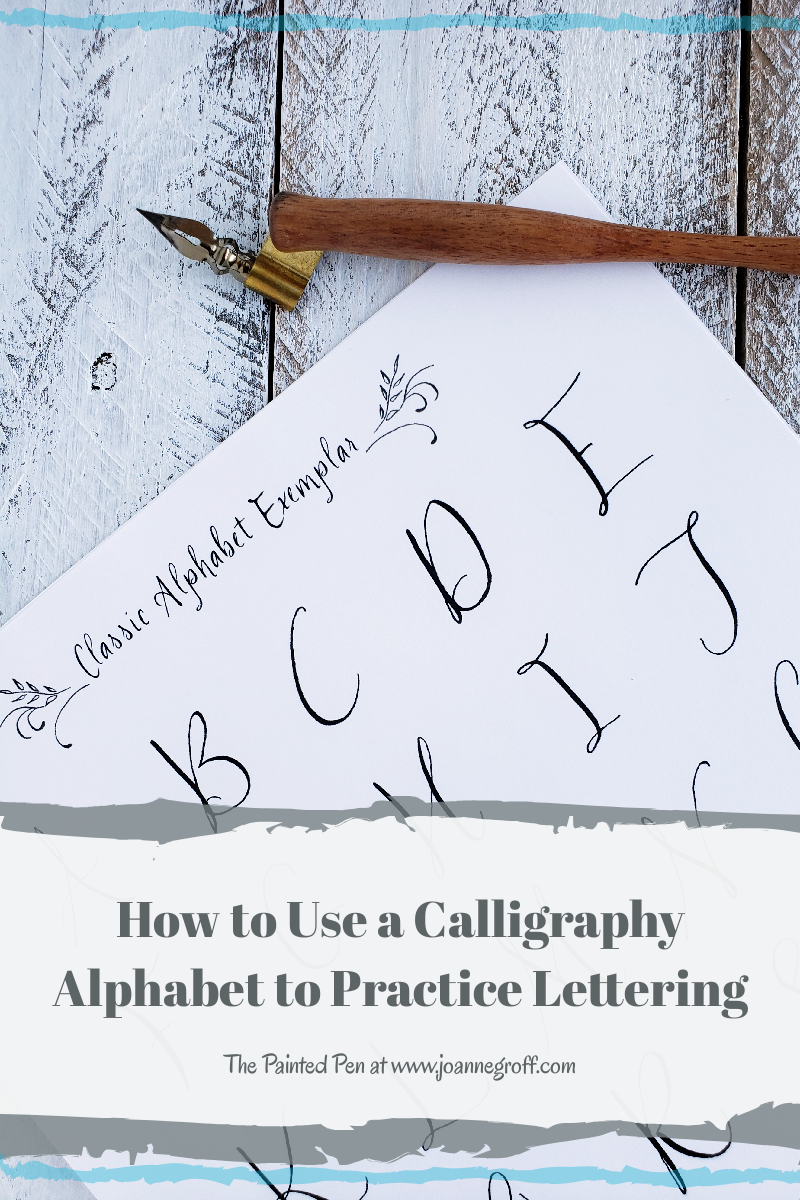
How to Use a Calligraphy Alphabet to Practice Lettering
As an Amazon Associate, this post contains affiliate links to products that I
use and recommend. I may receive a commission (at no additional cost to you) if you use these links to make a purchase. These links help me cover the cost of creating the content I offer on this site.
So you found a calligraphy alphabet, and now you want to learn how to make those beautiful letters to add a personal touch to those cards you send out to clients, friends, and family.
But where do you start?
You don’t always want to stick to the rules. Too many drills put you to sleep. You want another way to learn … something that feels productive more than repetitive.
Well, I just have to start with the reminder that the way we learn is by doing things over and over and over again, so repetition is part of learning. In fact, I’m a firm believer that practice wins over talent (unless talent is also practicing, of course).
That means it might get boring, but it also means if you stick with it, you will improve over time. Not maybe. You will.
On the brighter side, there are some ways to keep calligraphy practice a little more interesting. You can draw with your dip pen. The movement will teach you when to lift and when to apply pressure. It teaches you what movements you like and what you don’t like, so it trains your eye too.
Another way to learn that keeps with letters is using a calligraphy alphabet or a hand lettering alphabet.

You can make your own from your favorite style, do a little internet search, or join my email list to get access to the resource library, where you’ll find the above printable uppercase calligraphy alphabet and other free resources for your lettering and watercolor journey.
But what do you do with it once you have it?
Here are some ideas:
With a Light Box

Use a light box to trace over the letters exactly as you see them. This will help you learn how to make these letters consistently, but you may become dependent upon the exemplar. I don’t recommend this method beyond the initial learning stage unless you meet with a difficult stroke that requires some accurate practice. I want to encourage you to find your own style of hand lettering just as you have your own recognizable handwriting.
The light box I use is the Huion LED Light Pad. I bought mine on Amazon for about $35.
Under Tracing Paper

You can trace the letters with a pencil, adding flourishes or changing the slant or size of the letters to make it yours. 
Do you see how the letters have changed?
Do you want to learn more about lettering with a pencil? Check out this Easy Calligraphy post.
Grab some tracing paper and trace over the exemplar with a pencil. Make changes along the way, adding a flourish or a dip here and there to make the hand lettering alphabet yours. You can practice adding slant to the letters, enlarge the loops, shorten them, etc. Use the exemplar as a starting point to play with the letters.
As a Reference

Set the calligraphy alphabet exemplar nearby to use as a reference but practice the letters freehand. This way will teach you the most about letters and how to make them. Your muscles will work with your eyes to create the letters. As you go, compare the letters with the hand lettering alphabet before you. Tweak them as needed but again, trace the letters only when you meet with a very difficult letter or stroke.
Finally, pair these letters with your favorite lowercase handwriting or hand lettered alphabet and make word after word after word. Experiment with how the letters look as a word instead of individual letters.

Remember …
“Hard work beats talent when talent fails to work hard.”
~Tim Notke, a high school basketball coach
Happy Creating!

Again, if you want to download this alphabet exemplar, just sign up for Blots & Jots. I’ll email you the password for the resource library, and you’ll stay updated on the latest posts, projects, and news from The Painted Pen.

